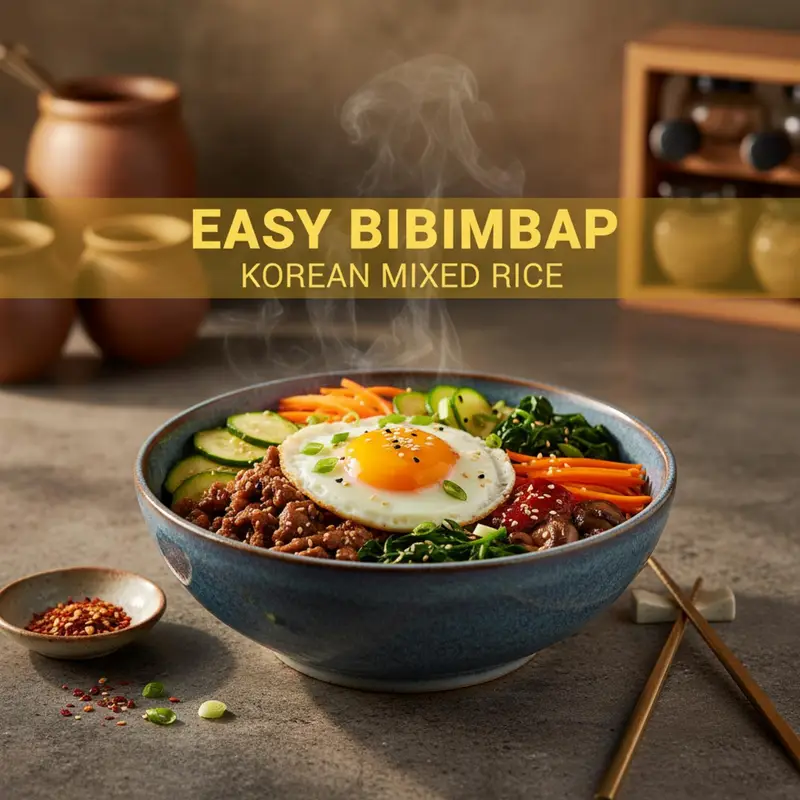Bibimbap is a classic Korean mixed rice dish topped with various seasoned vegetables, savory beef, a fried egg, and spicy gochujang. It’s a balanced and flavorful meal.

Easy Bibimbap: Korean Mixed Rice
Bibimbap is a classic Korean mixed rice dish topped with various seasoned vegetables, savory beef, a fried egg, and spicy gochujang. It's a balanced and flavorful meal.
Ingredients
- 2 cup cooked short-grain rice warm
- 200 g beef bulgogi (or ground beef) thinly sliced
- 1 tbsp soy sauce for beef marinade
- 1 tsp sesame oil for beef marinade
- 1 clove garlic minced
- 1 cup spinach blanched and squeezed dry
- 1 cup bean sprouts blanched
- 1 carrot julienned
- 1/2 zucchini julienned
- 4 large shiitake mushrooms sliced
- 2 tbsp sesame oil for sautéing vegetables
- 2 cloves garlic minced
- pinch salt to taste for vegetables
- 4 large eggs fried sunny-side up
- 2 tbsp gochujang
- 1 tsp sesame oil for drizzling
- 1 tbsp sesame seeds toasted
Instructions
- Prepare and marinate the beef: In a bowl, combine beef with soy sauce, 1 tsp sesame oil, and 1 minced garlic clove. Let marinate for 15 minutes. Cook in a pan until browned and tender. Set aside.
- Prepare the vegetables: Blanch spinach and bean sprouts, then lightly season with a touch of sesame oil and a pinch of salt. Sauté julienned carrots, zucchini, and sliced mushrooms individually with a little sesame oil and minced garlic until tender. Season lightly with salt. Set aside each vegetable separately.
- Cook the rice: Ensure you have warm, fluffy short-grain rice ready.
- Fry the eggs: Fry eggs sunny-side up, ensuring the yolk remains runny.
- Assemble the Bibimbap: In a large serving bowl, place a generous portion of warm rice at the bottom. Artfully arrange the cooked beef and each prepared vegetable in separate sections over the rice. Place a fried egg on top, in the center.
- Finish and serve: Drizzle with gochujang, a touch more sesame oil, and sprinkle generously with toasted sesame seeds. Serve immediately and instruct diners to mix all ingredients together just before eating.
Notes
For a vegetarian version, omit the beef and add more seasoned vegetables or pan-fried tofu. Adjust the amount of gochujang to your preferred spice level. You can also use different vegetables like cucumber, radish, or bell peppers. Serving Bibimbap in a dolsot (hot stone bowl) creates a crispy rice crust at the bottom.






